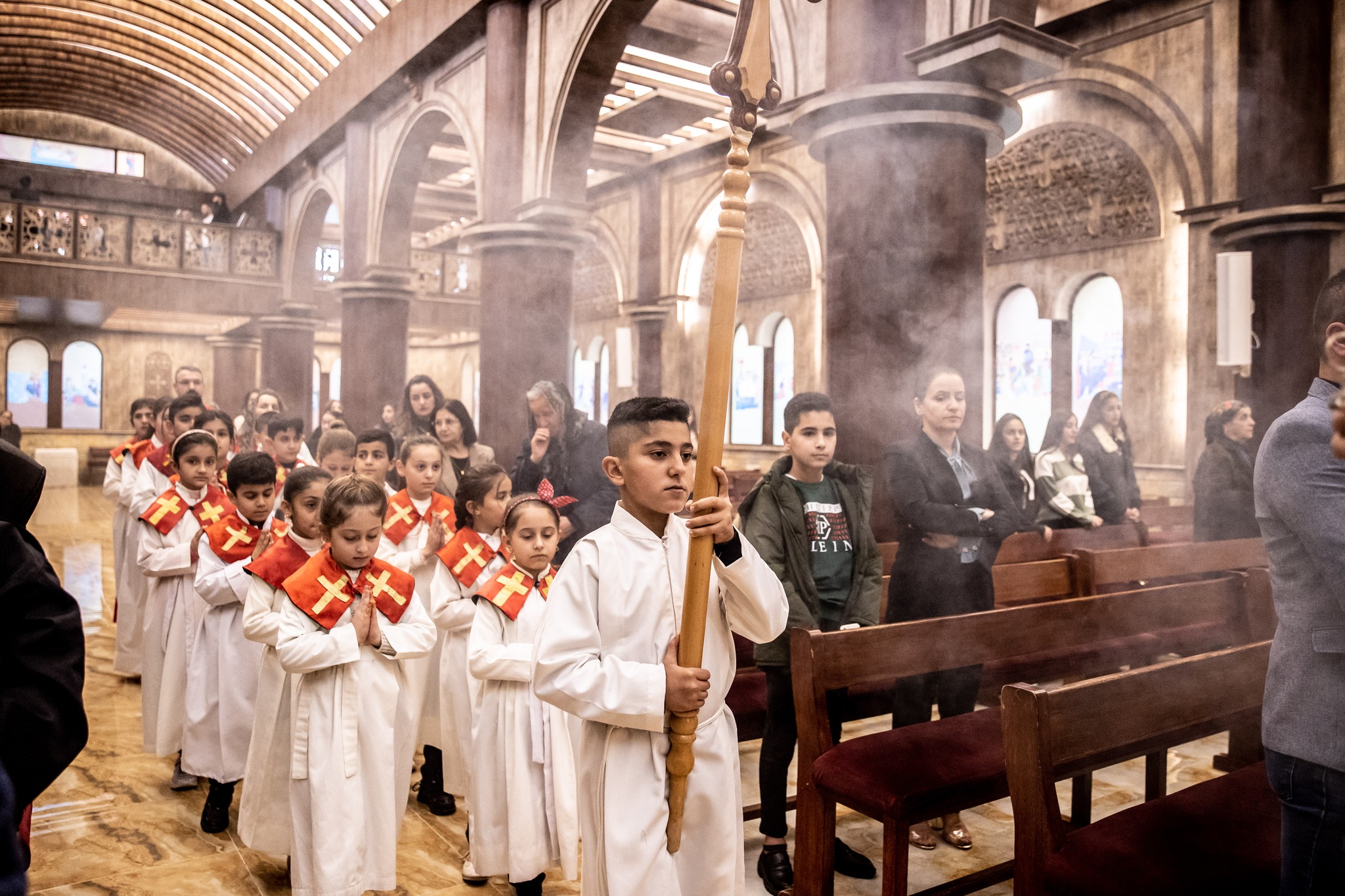
Hungary Helps, while the Western political mainstream turns a blind eye.Continue reading
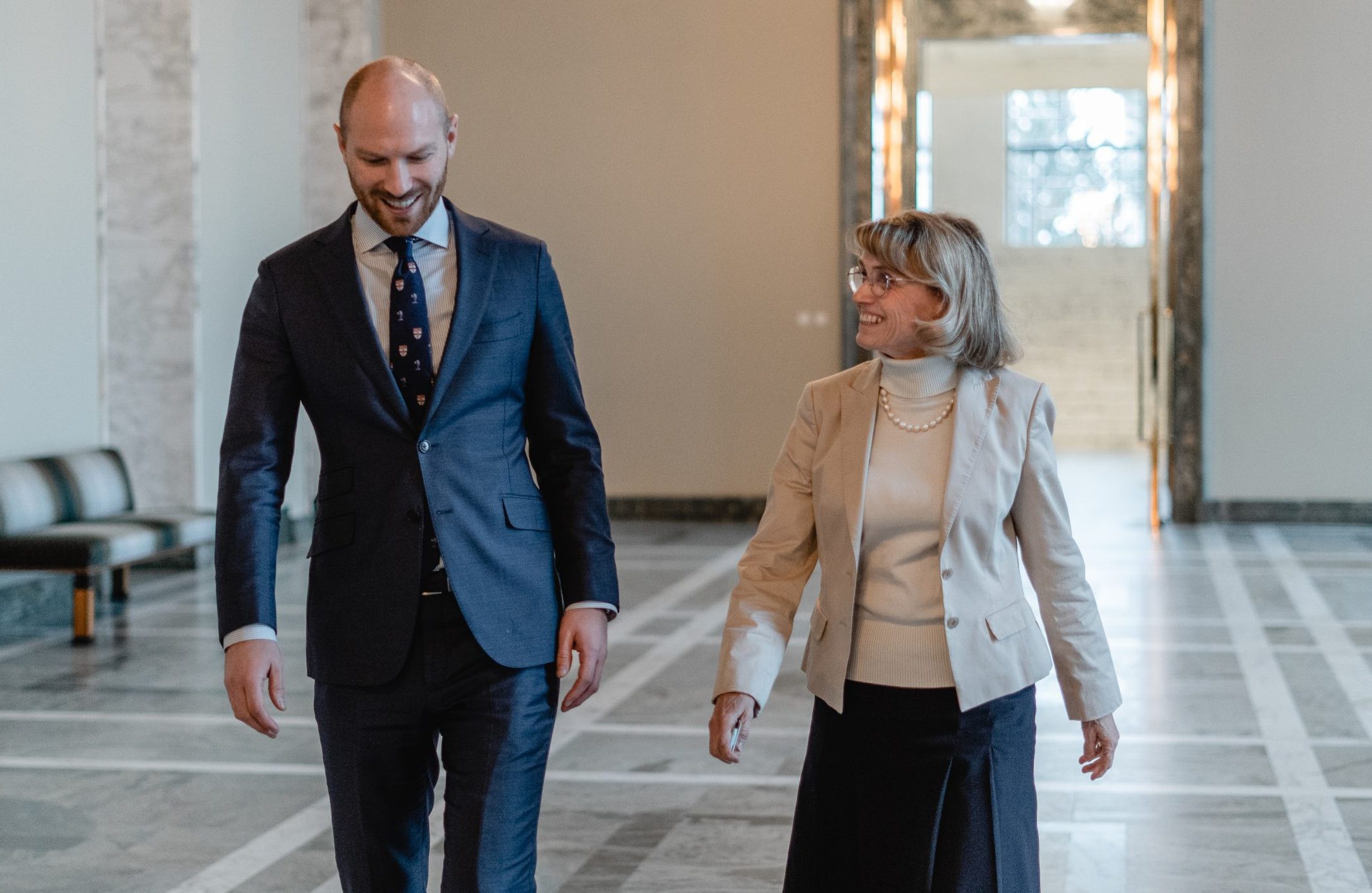
Photo: ADF Director Paul Coleman (L) with former Finnish minister Päivi Räsänen (R)
The Alliance Defending Freedom, or ADF International, is a faith-based legal advocacy organization that protects fundamental freedoms. They have been involved in dozens of high-profile legal cases, often representing employees, private individuals or even politicians, who have been discriminated against, or prosecuted for adhering to principles of their Christian faith. In an interview to Hungary Today, ADF Executive Director Paul Coleman speaks about the rising tide of anti-Christian bigotry in Europe, and how his team faces up to the challenges of aggressive political secularism.
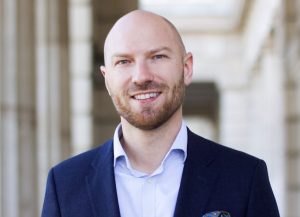
Photo: Paul Coleman, ADF International
– What is ADF International’s main goal, and how did this advocacy group’s mission change since the establishment of its forerunner organization some thirty years ago?
In many ways, the fundamentals of the mission have not changed. We were set up and established to defend fundamental freedoms that are under threat in the US and across the West, and to promote the inherent dignity of all people. Although we used a different language in the early nineties to today, those core values still remain. We are still committed to defending everyone’s fundamental right to the freedom of religion, of speech, of associating with one another, the fundamental right to life, marriage, family. What has changed is the basic environment we are operating in. Here in the West it has become more intense, the challenges that we face from aggressive secularism have increased in the last three decades. We see that trajectory just continuing. Outside the West we seek to protect Christians around the world who face persecution. We have all seen trends of persecution increasing in the last thirty years across Africa and the Middle-East. So the mission has stayed the same but it got harder.
– You are defending people persecuted for trying to live their lives according to their Christian faith all over the world. Outside Europe the reasons for this persecution usually stem from the fundamentalist type claim for supremacy by other faith systems, but in Europe, there are no such competing religious power groups to explain the attacks against Christians. What lies behind these ever more frequent challenges to Christian attitudes and values in Europe?
Well, it is a different type of fundamentalism here in Europe, but still held in a very strong way. Aggressive secularism with the idea that religion has no place in public life and essentially that Europe has moved on from its Christian history. What we see at the EU level across the international institutions and most of the European governments as well is a desire to move away from Christianity, or where that is not happening, to remold Christianity in line with the modern secular world-view. In fact many countries across Europe do not mind paying lip-service to Christianity. As long as Christianity falls line with the modern secular orthodoxy of the day, the “on” issues like abortion, sexuality, so as long as it evolves to fall in line with those views, it is accepted. If Christians do not adapt their views in line with the dominant modern secular world view, that is where we see a huge clash, that is where we see a lot of pressure. That is where we get involved, as an organization.

ADF International has secured a win for free expression – Pavica Vojnović challenged a municipal ban in Pforzheim, Germany prohibiting her group from praying in front of a local abortion referral center.
– Only the Hungarian government has made Christian values an explicit part of its political manifesto, yet one could argue though that we are witnessing an increasing number of religious symbols in public life. You see corporate messages in social media celebrating religious festivals of faiths other than Christianity, prayer rooms in public places accommodating different religious groups, etc. So is not there an element of contradiction in this apparent drive towards secularism?
All of these examples that you have mentioned, as long as this is subservient to the secular orthodoxy, then these corporations are happy talking about faiths in generic terms. They think that makes them look diverse, more tolerant. But we see a completely different story when one of those people acting on their faith paves a different view to the corporate policy, for example not wishing to participate in a gay pride parade. And then we see how tolerant and welcoming they are towards these different world-views. We live in a time now when a lot of governments and corporations are still very happy to talk about faith and they seem to be championing them, but not when there is a clash with what they believe and what perspective their creed dictates about marriage, sexuality and other fundamental beliefs.
– In the West, are the reasons behind these legal and political attacks against the traditional social fabric based on Christian faith too eclectic to find a common denominator, or are they systemic with an over-arching force driving these challenges?
The biggest common denominator across what looks to be a lot of eclectic beliefs and world-views is their belief in a radical individual economy. The idea that the individual has the absolute right to define who they are, how they should live, what would they do with their own body. No one and nothing can get in the way of that. What that means in regards to traditional Christian beliefs on issues of marriages, for example, or what it means to be made male and female, or having a view that an unborn child is a living being worthy of protection, all of that clashes with the radical individual autonomy. That is where we see the biggest clashes taking place. If I had to distill all that to one driving concept, then I would refer to the book of Carl Trueman, the Rise and Times of the Modern Self. He details hundreds of years of history leading up to this moment that we are currently in. He explains why these things are not just happening, that they are inherently interconnected and have been developing across the West for a long time.
– Do you witness similar discrimination against other faiths in the West, or is Christianity especially affected?
I think that the legal challenges that Christians have faced in Europe, are not unique to Christians, but they are bearing the brunt of a lot of that. There is really no argument about this. We are monitoring what is happening across a lot of countries in Europe, and the cases we are involved in, time and time again it is the Christian who ends up being the one who is fired or dragged before the court accused of hate-speech, or discrimination. One of the reasons for that is that there is a reluctance from secular governments across Europe to go after different religious groups, whereas Christians seem to be easier targets. Politicians do not want to be seen going after minorities, and Christians are in the firing line a lot of the time. We are involved in hundreds of cases in Europe with Christians who are being threatened in the workplace, unable to practice their conscience in the business-world or in the workplace, etc. And we do not see that same level of issues happening with people who might hold similar beliefs but come from a different religious background.
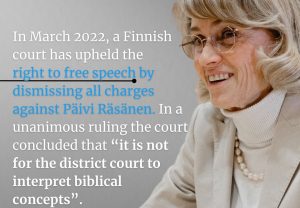
Päivi Räsänen stood trial against four “hate speech” charges. The former Minister of the Interior had been criminally charged for sharing her faith-based convictions on marriage and sexual ethics.
– Your manifesto declares goals such as countering the global persecution of Christians, primacy of parental authority, defending pro-life policies, defending the institution of marriage, etc. Yet apart from Hungary and perhaps Poland, you have very few potential partners on a governmental level for these goals. How do you open doors on a political level and at international institutions in defending your clients’ interests?
Its very difficult, but we find that even in increasingly hostile contexts, and when we are dealing with some of these issue by issue, we can often find common ground. It is impossible to find at a government level entities that fully align with our values and want to support them. But if we break then down and look at any given issue, particularly when we partner with nations outside Europe then on an issue by issue basis we have been able to find common ground. And even underneath the political level in Europe, it is not completely black and white in the sense that there are governments and individual politicians or parties that are more supportive of our issues than others. Its not that everyone by any means is against the positions that we are putting forward. It is obviously getting challenging, the overarching drive towards secularism, toward the abandonment of Christian values has a clear trajectory. But even along the way on that trajectory one is finding many partners on the political and governmental level. This encourages us, because if we did not find such partners then we would struggle. Päivi Räsänen would be one such example. Right now they are in the minority, but Päivi herself has been a government minister. These are people who are fully aligned with values that we are putting forward.
– With common ground in topics embraced by ADF and some Hungarian politicians, it is hard to glance over the similarities in bad press between the two either. You have been called out of touch, toxic, dangerous, anti-LGBT rights, extreme-right wing, etc. Why do your critics feel threatened by values that built European civilizations?
What we see across the political discourse on the whole is a complete breakdown of the exchange of views. Just resorting to name-calling, to trying to shout the other side down, and it applies often to our position as well. We often find it disappointing, frustrating when those who take a different view to us rather than engage with us on the views that we are putting forward and try and reason it out, which people have been doing in Europe for centuries. Instead we are getting cancel culture and shutting down the debate. Lets not have the debate, lets not talk about it, just try and shut it down. Why they are doing that? Firstly, we believe, with all of our heart that we are speaking the truth, and that threatens them. Secondly, we are challenging their position. They obviously in many areas of society hold a dominant area right now, which we threaten and challenge. Thirdly, we will not back down. We are not going to be intimidated, we are not going to be threatened into silence, and we are not going away. And that threatens them too.
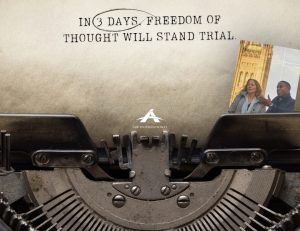
Isabel Vaughan-Spruce, arrested and charged for silent prayer within the censorship zone of a Birmingham abortion facility, has been notified of an upcoming hearing on her case, scheduled for 16 February.
– The legal system that enables you to defend your clients’ rights contains remnants of Christian morals and Christian humanism. Are you concerned, that the currently dominant ideological forces that have an almost unchallenged monopoly in legislative reform in Europe will gradually erase these from our laws and constitutional framework?
This question really gets to the heart of the issue, which is, under what framework we are operating. I really enjoyed Tom Holland’s book, Dominion, as he traced the effects of Christianity across the West. He draws out a very similar point in terms of what are we basing certain values on, what is the for them. So if we think about what is the foundation for equality, there was not real equality in the Roman world, in the pre-Christian world. What is the basis of saying that there is human dignity? It is a phrase that many secular politicians like to use, but what are they basing it on?
If we go down the route of unpicking those foundations, which are already crumbling, and if we go down the route of fully abandoning the Christian values and principles on which our legal framework is based, then we could see things crashing down very quickly. Of course we do not want that to happen, and none of us has a crystal ball to see what is coming in the future. But if those foundations really move then how will we have a real framework to seek justice, to promote the inherent dignity of people if this very concept is not even accepted?
We have already seen the signs of that sort of thing. We see an increasing judgment from top courts across the secular West that are really abandoning the principle of the rule of law and are deciding these cases based on the views of the judges themselves, rather than on what the law already says. So we are already seeing signs of what could happen in a future that completely abandons these principles. We are not there yet but one of the reasons why we exist and continue to work hard within the legal system of Europe and around the world is that we are trying to protect not just the issues that we work on, but the framework that allows us to fight for those issues in the first place.
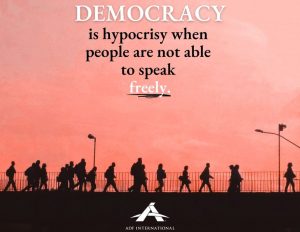
There are often accusation towards organizations like yourselves, that you are simply fundamentalist Christians and want to preserve the old world order, a Christian old boys club, and you are unable to move with the times towards a multicultural Europe where all religions have and equal say. Can Christianity hold a claim to primacy on this continent based on a historical perspective as far as the future of Europe is concerned, or should Christians abandon this?
To an extent it is in our power to do so, obviously to believe that we should hold our ground on the fundamentals of Christianity as they play out through our legal and political system. That does not mean that we are supporting a theocracy across Europe, I do not think anyone is. But to support the principles of equality and the rule of law, the inherent dignity of the human person, the true understanding of what freedom means, all of these things derive from Christianity, and we should be proud of this. These are things that we need to hold on to. Whether we will be successful in that, remains to be seen and obviously nobody knows.
A lot of people see things trending in a very negative direction, but one of the lessons of history is that things can turn around very quickly.
Like the fall of Communism. All of the indicators, all of the political theorists were pointing in one direction, but things changed very quickly. Many other examples throughout history gives us hope and encouragement that things may turn around in our times as well.
What name would you give to the current Berlin Wall? Where should societies return after its fall?
The thing that we want to return to is the Judeo-Christian world-view that shaped this continent to begin with and still is so heavily a part of everything that we experience today even if we do not recognize or appreciate it. Is that a possibility? I would not want to rule it out. Outside the organizational aims that we have as a ministry, that is very legal and political in scope, we are a Christian ministry and so what we see is that the things that we are working on within the legal and political realm they are not an end of themselves. They are a means to an end and the end is the renewal of Christianity of the Church. That is the ultimate end that we are seeking.
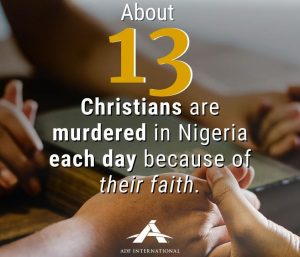
You do not seem to be getting much sympathy from the top brass of Christian churches across Europe, in fact when you listen to the communication of most major church leaders one seems to be confronted with the exact opposite of the values and goals that you have outlined. They are not concerned about demonstrating the logic of the Judeo-Christian value system and communicating it towards communities that are currently flooding into Europe. Do you have a similar experience with this issue?
Again, we can take some encouragement from history in that the renewal of the Church historically never really started at the top. God always worked through a creative minority in the church. So we take encouragement in that. But we of course want Church leaders to speak boldly and faithfully and to lead us. But when it comes to any renewal that we want within our faith and the church, the change was happening throughout history from the bottom up. And it does not surprise me that that is what we might see in our age too.
Featured Photo: Courtesy of ADF International